Quick Betimate
Popular Leagues
-
UEFA Nations League
-
England (12)
- FA Cup
- Premier League (2)
- Championship (1)
- League 1 (1)
- League 2 (1)
- National League (2)
- National League North
- National League South
- EFL Trophy
- Premier League 2
- Championship Women
- Development League 2 (1)
- FA Cup Women
- FA Trophy
- FA Vase
- Isthmian Division One North
- Isthmian Division One South
- Isthmian Premier Division
- National League Cup
- Northern League Division One
- Northern Premier League
- Reserve Matches
- Southern Premier League Central
- Southern Premier League South
- Super League Women
- U21 Premier League Cup
- Northern Ireland Championship
- Northern Ireland Championship Women
- Northern Ireland Cup
- Northern Ireland Intermediate Cup
- Northern Ireland League Cup Women
- Northern Ireland Play-Offs
- Northern Ireland Premier
- Northern Ireland Premier Intermediate League
- Northern Ireland Premier League Women (4)
- Northern Ireland Reserve League
- Scotland Regional Cup
- Wales League Cup Women
-
Japan J-League Cup (7)
-
UEFA Champions League (1)
-
Spain (89)
- La Liga (10)
- Segunda (11)
- Tercera Group 1 (2)
- Tercera Group 2 (2)
- Tercera Group 3 (2)
- Tercera Group 4 (2)
- Tercera Group 5 (2)
- Tercera Group 6 (2)
- Tercera Group 7 (2)
- Tercera Group 8 (2)
- Tercera Group 9 (2)
- Tercera Group 10 (2)
- Tercera Group 11 (2)
- Tercera Group 12 (2)
- Tercera Group 13 (2)
- Tercera Group 14 (2)
- Tercera Group 15 (2)
- Tercera Group 16 (2)
- Tercera Group 17 (2)
- Tercera Group 18 (2)
- Youth League
- Copa De La Reina (1)
- Copa del Rey
- Kings League - 40 mins play (1)
- Primera Division RFEF Group 1 (10)
- Primera Division RFEF Group 2 (10)
- Primera Federacion Women
- Primera Women
- Queens League - 40 mins play
- Regional Cup
- Regional League
- Regional League Play-Offs
- Segunda Division RFEF Group 1
- Segunda Division RFEF Group 2
- Segunda Division RFEF Group 3
- Segunda Division RFEF Group 4
- Segunda Division RFEF Group 5
- Segunda Division RFEF Play-Offs (10)
- Segunda Federacion Women
- Tercera - Play-Offs
- Tercera Federacion Women
- Women Regional League
- Women Segunda Play-Offs
-
USA (802)
-
UEFA Europa League (1)
-
Germany (83)
- Bundesliga I
- Bundesliga II
- DFB Pokal (1)
- Regionalliga Bayern
- Regionalliga North
- Regionalliga North East
- Regionalliga South West
- Regionalliga West
- Oberliga Baden-Wuerttemberg (9)
- Oberliga Bayern North
- Oberliga Bayern South
- Oberliga Bremen
- Oberliga Hamburg
- Oberliga Hessen (10)
- Oberliga Mittelrhein (8)
- Oberliga Niederrhein (9)
- Oberliga Niedersachsen
- Oberliga NOFV Nord (8)
- Oberliga NOFV Sud (8)
- Oberliga Rheinland-Pfalz/Saar (5)
- Oberliga Schleswig-Holstein
- Oberliga Westfalen (8)
- 3. Liga
- Bundesliga II Play-Offs (2)
- Bundesliga II Women
- Bundesliga Play-Offs (2)
- Bundesliga U19
- Bundesliga Women
- DFB Pokal Women
- Oberliga Play-Offs (6)
- Regionalliga Play-Offs (6)
- U19 Cup (1)
-
Italy (19)
- Serie A (10)
- Serie B (2)
- Serie C Group A
- Serie C Group B
- Serie C Group C
- Campionato Nazionale
- Campionato Primavera 1
- Campionato Primavera 2
- Serie D
- Coppa Italia
- Coppa Italia Women
- Campionato Primavera 3
- Campionato Primavera 4
- Serie A Women
- Serie B Play-Offs (2)
- Serie B Women
- Serie C Play-Offs (4)
- Serie C Super Cup
- Serie D Play-Offs (1)
- U19 League Women
-
France (6)
-
Netherlands (19)
-
Scotland (3)
-
Japan J-League (2)
-
Lebanon League (1)
-
Greece Super League 1 (3)
-
Georgia Erovnuli Liga (5)
-
UAE Premier League (4)
-
Slovakia Super Liga (2)
-
Poland III Liga (36)
-
Esport (238)
Other Leagues
-
Albania
-
Algeria (3)
-
Andorra (1)
-
Angola (8)
-
Argentina (86)
- Nacional B (19)
- Primera B Metropolitana (5)
- Primera C Metropolitana (12)
- Reserve League (1)
- Cup (11)
- Torneo A (18)
- Copa Santa Fe
- Championship Women (2)
- Copa de la Liga Profesional
- Copa Santa Fe Women
- Copa Santa Fe Women - 80 mins play
- Liga Profesional (1)
- Liga Profesional Reserves (15)
- Nacional Reserve League (2)
- Regional League
- Youth League
-
Armenia (9)
-
Aruba (1)
-
Australia (134)
- A-League (2)
- A-League Women
- Capital Territory NPL2 (4)
- Capital Territory NPL2 U23 League
- Capital Territory Premier League (4)
- Capital Territory Premier League Women (1)
- Capital Territory Premier League Women Reserves
- Capital Territory U23 League
- Cup
- Cup Qualifying (13)
- Darwin Premier League
- FFA Cup Qualifying
- New South Wales League 1 (8)
- New South Wales League 2
- New South Wales NPL Women (7)
- New South Wales NPL2 Women
- New South Wales Premier League (8)
- New South Wales U20 League (1)
- Northern NSW Division 1 (1)
- Northern NSW Premier League (2)
- Northern NSW Premier League Women
- Northern NSW Reserves League (1)
- NPL Queensland (6)
- NPL Queensland U23 (1)
- NPL Queensland Women (5)
- NPL Victoria (7)
- NPL Victoria U23
- NPL Victoria Women (6)
- NSW League 1 U20
- NSW League 2 U20
- Queensland PL 2 U23
- Queensland PL U23
- Queensland Premier League (6)
- Queensland Premier League 2 (6)
- Queensland Premier League 2 Women
- Queensland Premier League 3
- Queensland Premier League 4
- Queensland Premier League Women
- SA Premier League Reserves
- SA Premier League Women (5)
- SA Premier League Women Reserves
- South Australia Premier League (6)
- South Australia State League 1 (6)
- South Australia State League Reserves
- Sunday League Premier Division
- Sunday League Premier Division Reserve
- Tasmania Championship (4)
- Tasmania Championship 1
- Tasmania Championship Women
- Tasmania NPL U21 League
- Tasmania Premier League (4)
- Tasmania South Division 1
- Tasmania Super League Women
- Victoria PL 1 U23
- Victoria Premier League 1 (4)
- Victoria Premier League 2 (3)
- Victoria Premier League Women
- Victoria State League 1
- Victoria State League 1 Reserves
- Victoria State League 2
- Victoria State League 2 Reserves
- WA Premier League Women (1)
- WA Premier League Women U21
- WA State Cup Women
- WA State League 1 Reserves
- Western Australia Premier League (6)
- Western Australia State League 1 (6)
- Western Australia State League 1 Women
- Western Australia State League 2
- Western Australia U23 League
- Australian Matches
-
Austria (39)
-
Azerbaijan (11)
-
Bahrain (6)
-
Bangladesh (5)
-
Barbados
-
Belarus (19)
-
Belgium (1)
-
Benin
-
Bhutan
-
Bolivia (16)
-
Bosnia & Herzegovina (14)
-
Botswana (8)
-
Brazil (183)
- Serie A (11)
- Serie B (10)
- Serie C (10)
- Campeonato Amapaense
- Campeonato Baiano 2 (5)
- Campeonato Brasileiro A2 Women (8)
- Campeonato Brasileiro Serie B U20 (4)
- Campeonato Carioca A2 (1)
- Campeonato Carioca B (5)
- Campeonato Gaucho 2 (7)
- Campeonato Goiano 2 (4)
- Campeonato Maranhense
- Campeonato Mineiro 2 (6)
- Campeonato Mineiro U20 (6)
- Campeonato Paranaense 2 (5)
- Campeonato Paulista A4
- Campeonato Paulista U20 (24)
- Catarinense 2 (4)
- Copa Espirito Santo (7)
- Copa Nordeste (4)
- Copa Rio Women
- Copa Verde
- Matches
- Matches Women
- Paraense
- Paulista Cup (11)
- Paulista Serie B
- Paulista Women (4)
- Serie A U20 (10)
- Serie A1 Women (8)
- Serie A2 Women
- Serie A3 Women (8)
- Serie D (3)
- U20 Cup
- U20 League (2)
- U20 Women Cup
- Copa do Brasil (16)
- Women’s Friendly
-
Bulgaria (18)
-
Burkina Faso
-
Burundi
-
Cambodia
-
Cameroon (2)
-
Canada (8)
-
Chile (23)
-
China (49)
-
Colombia (12)
-
Costa Rica (2)
-
Côte d’Ivoire
-
Croatia (20)
-
Cuba
-
Cyprus
-
Czech Republic (90)
-
Denmark (55)
-
Djibouti
-
Dominica
-
Dominican Republic
-
Ecuador (17)
-
Egypt (23)
-
El Salvador (2)
-
Estonia (21)
-
Ethiopia (9)
-
Faroe Islands (14)
-
Fiji
-
Finland (105)
-
Gambia (3)
-
Georgia (10)
-
Ghana (9)
-
Gibraltar
-
Greece (3)
-
Guatemala
-
Haiti (8)
-
Honduras
-
Hong Kong SAR China (5)
-
Hungary (15)
-
Iceland (47)
-
India (2)
-
Indonesia (9)
-
Iran (2)
-
Iraq (4)
-
Ireland (19)
- Republic of Ireland FAI Cup
- Republic of Ireland FAI Intermediate Cup
- Republic of Ireland First Division (5)
- Republic of Ireland Leinster Senior Cup
- Republic of Ireland Leinster Senior League (3)
- Republic of Ireland Munster Senior Cup
- Republic of Ireland Munster Senior League
- Republic of Ireland National League Women (6)
- Republic of Ireland Premier Division (5)
- Republic of Ireland U20 League
-
Israel (9)
-
Jamaica (1)
-
Japan (67)
-
Jordan
-
Kazakhstan (14)
-
Kenya (9)
-
Kuwait (2)
-
Kyrgyzstan
-
Latvia (11)
-
Lebanon (1)
-
Liechtenstein (1)
-
Lithuania (22)
-
Luxembourg (17)
-
Macau SAR China (4)
-
Macedonia (1)
-
Malawi (9)
-
Malaysia
-
Mali
-
Malta
-
Mauritania
-
Mexico (2)
-
Moldova (3)
-
Mongolia
-
Montenegro (10)
-
Morocco (1)
-
Mozambique (1)
-
Myanmar (Burma) (2)
-
Namibia
-
Nepal (1)
-
New Zealand (16)
-
Nicaragua (1)
-
Niger
-
Nigeria (10)
-
Norway (99)
- Eliteserien (8)
- Division 1 (8)
- Cup (8)
- Cup Women (8)
- Division 1 Play-Offs
- Division 1 Women (6)
- Division 2 Group 1 (7)
- Division 2 Group 2 (7)
- Division 2 Group 3
- Division 3 Group 1 (7)
- Division 3 Group 2 (7)
- Division 3 Group 3 (7)
- Division 3 Group 4 (7)
- Division 3 Group 5 (7)
- Division 3 Group 6 (7)
- Interkretsserie U19
- Toppserien Women (5)
- U19 Elite League
- Youth Cup
-
Oman
-
Panama (4)
-
Paraguay (10)
-
Peru (18)
-
Philippines
-
Poland (76)
-
Portugal (13)
-
Puerto Rico
-
Qatar
-
Romania (27)
-
Russia (31)
-
Rwanda (10)
-
Saint Kitts and Nevis
-
San Marino (1)
-
Saudi Arabia (13)
-
Senegal (6)
-
Serbia (17)
-
Seychelles
-
Sierra Leone
-
Singapore (7)
-
Slovakia (23)
-
Slovenia (13)
-
Solomon Islands
-
South Africa (1)
-
South Korea (24)
-
Suriname
-
Sweden (108)
- Europe Friendlies
- Allsvenskan Qualification
- Superettan Qualification
- 1.div Norra (8)
- Cup (1)
- 1.div Södra (8)
- 2.div Norra Götaland (7)
- 2.div Norra Svealand (7)
- 2.div Norrland (16)
- 2.div Södra Götaland (7)
- 2.div Södra Svealand (7)
- 2.div Västra Götaland (7)
- Allsvenskan (2)
- Cup Qualification (6)
- Cup Women (1)
- Damallsvenskan (1)
- Div 1 Relegation (8)
- Elitettan (7)
- Juniorallsvenskan (7)
- Superettan (8)
-
Switzerland (21)
-
Taiwan
-
Tajikistan
-
Tanzania (16)
-
Thailand (2)
-
Togo
-
Trinidad and Tobago (6)
-
Tunisia (16)
-
Turkey (23)
-
Uganda (1)
-
Ukraine (20)
-
United Arab Emirates (15)
-
Uruguay (6)
-
Uzbekistan (12)
-
Venezuela (4)
-
Vietnam (15)
-
Wales
-
Zambia
-
Zimbabwe
Football vs Soccer Debate: Why do Americans call football soccer?

Soccer, or football as it is commonly known across the globe, is undeniably one of the most popular sports worldwide. Its widespread popularity can be attributed to various factors, including its simplicity, accessibility, and rich history. Soccer captivates the hearts of millions, transcending borders, cultures, and languages. The FIFA World Cup, the most prestigious tournament in international soccer, draws billions of viewers and ignites passion and excitement among fans from every corner of the world. The global appeal of the sport has contributed to its growth and solidified its position as the king of sports internationally.
In the United States, the term "soccer" is predominantly used to refer to what is commonly known as "football" in other parts of the world. So, why do americans call football soccer. Let's Betimate explain through different aspects.
Historical Background
Origins of soccer and its global adoption
The Ancient Origins of Soccer
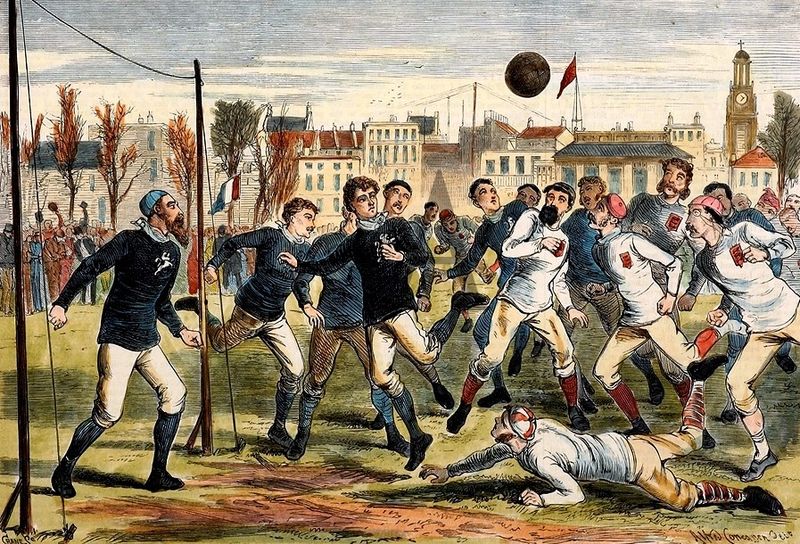
Soccer has a rich history that dates back thousands of years
Soccer has a rich history that dates back thousands of years. Ancient civilizations such as the Greeks, Romans, and Chinese played various forms of ball games resembling soccer. These early versions of the game laid the foundation for what would become modern soccer.
The British Influence
The British Influence is one of major reasons why does american call football soccer. The modern game of soccer as we know it today originated in England during the mid-19th century. It gained popularity among the working class and spread rapidly across the country. The establishment of standardized rules by the Football Association in 1863 further solidified the sport's structure.
Global Adoption and Diverse Terminology
As the British Empire expanded its reach, so did the sport of soccer. British workers, soldiers, and traders brought the game to different parts of the world, including the United States. However, as soccer reached different cultures and languages, it acquired various names and terminologies, leading to the diverse linguistic landscape we see today.
Early history of soccer in the United States
Early Adaptation of Soccer
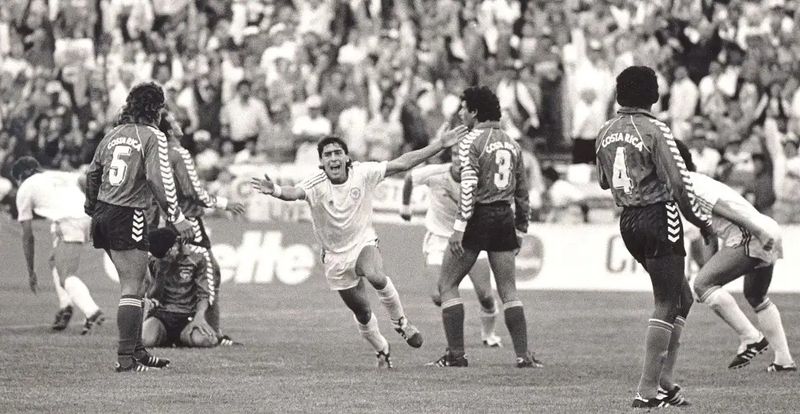
In the late 19th and early 20th centuries, soccer gained traction in the United States
In the late 19th and early 20th centuries, soccer gained traction in the United States and created the first point for why does America call fotoball soccer. Immigrants from countries where soccer was popular, such as England, Scotland, and Ireland, brought their love for the game to American shores. Soccer clubs and leagues began to emerge in cities with large immigrant populations.
Challenges and Rivalries
During the early 20th century, soccer faced several challenges in the United States. The sport struggled to compete with other established sports like baseball and American football, which had gained considerable popularity. Additionally, cultural and linguistic differences contributed to the distinctive terminology used to refer to the game.
Emergence of American football and its influence on terminology
The Rise of American Football
American football, a sport with its own set of rules and characteristics, began to take shape in the late 19th century. It was primarily derived from rugby and evolved into a distinct American sport. American football gained significant popularity, especially among college students.
Terminology Differentiation
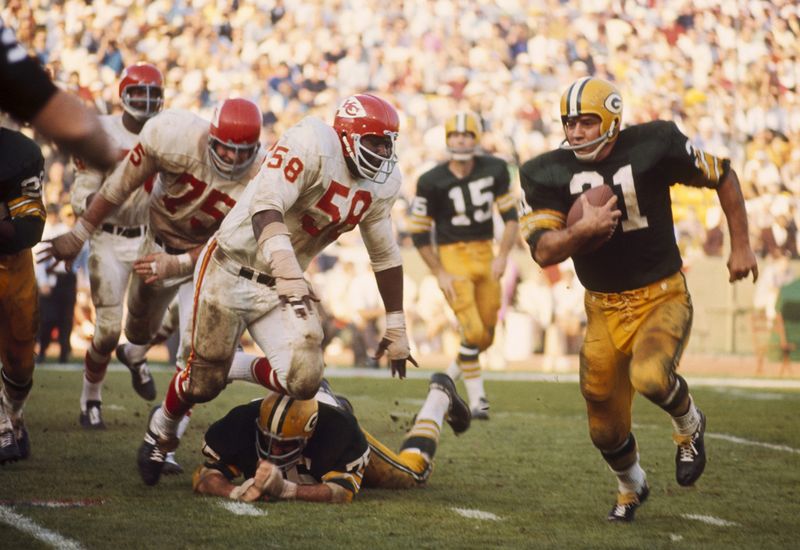
The Rise of American Football (Rugby) created the need of terminology differentiation
To differentiate the two sports, soccer and American football, the term "soccer" became widely used to refer to the game of football played with the feet. This distinction was necessary because American football predominantly involves handling the ball with the hands. Over time, this linguistic differentiation solidified, leading to Americans commonly referring to the sport as soccer. And that's why does american call football soccer.
Cultural Factors: The American Sporting Landscape
Americans have a unique naming convention when it comes to the sport commonly known as football. While the rest of the world refers to it as football, Americans prefer to call it soccer. This peculiar choice of terminology can be attributed to several cultural factors that have influenced the American sports landscape.
Influence of Cultural Diversity in the United States
The United States is a melting pot of cultures and ethnicities, with people from various backgrounds coexisting and contributing to the nation's identity. This cultural diversity plays a significant role in shaping American preferences, including the names assigned to sports. The term "soccer" gained prominence in the United States to differentiate it from American football, which has its own distinct set of rules and gameplay. The linguistic influence of cultural diversity led to the adoption of the term "soccer" as a way to distinguish the sport from the more popular American football.
Prominence of American Football, Baseball, and Basketball
American football, baseball, and basketball are three of the most prominent sports in the United States. These sports have deep-rooted traditions and enjoy widespread popularity among Americans. American football, in particular, holds a special place in American culture, with the National Football League (NFL) being one of the most-watched sports leagues in the country.
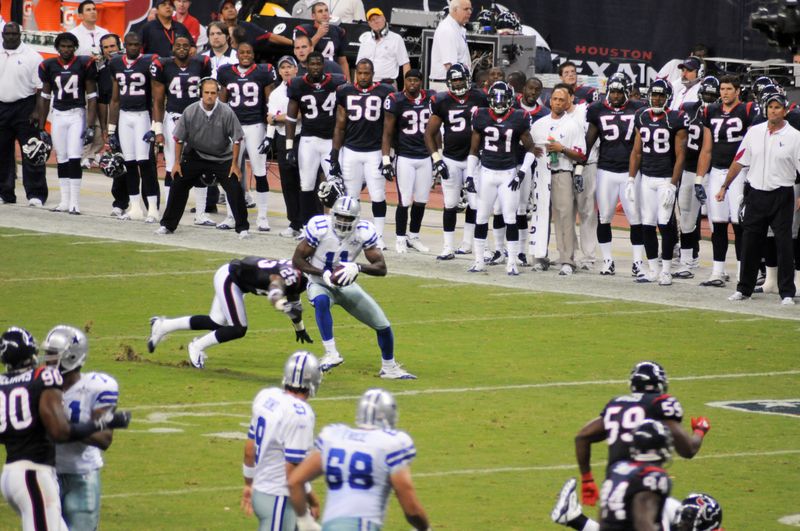
American football, baseball, and basketball are three of the most prominent sports in the United States
The dominance of these sports in the American sports landscape contributes to the unique naming conventions associated with football. By adopting the term "soccer," Americans can differentiate the sport from their beloved American football, baseball, and basketball.
How These Sports Shaped the American Sports Lexicon
The popularity of American football, baseball, and basketball has had a significant impact on the American sports lexicon. Terms and phrases originating from these sports have become deeply ingrained in American English. For instance, phrases like "touchdown," "home run," and "slam dunk" are commonly used in everyday conversations, showcasing the influence of these sports on the language. As a result, when it came to naming the sport known as football worldwide, Americans opted for "soccer" to maintain consistency with the terminology associated with their beloved sports.
Linguistic Factors
The linguistic differences between British English and American English have led to various variations in vocabulary and terminology and is one of major reasons why do Americans call it soccer. One notable difference is the contrasting terms used for the popular sport known as football. In Great Britain, the sport is referred to as "football," while in the United States, it is commonly called "soccer."
The Linguistic Differences between British English and American English
British English and American English are two major branches of the English language that have evolved separately due to historical and cultural factors. These linguistic differences encompass vocabulary, pronunciation, grammar, and even spelling. One prominent example of divergence is the term used to describe the sport known as football. In British English, "football" refers to the game that involves kicking a round ball, while American English uses the term "soccer" for the same sport. This distinction can be attributed to the unique development of language in each country.
Where did the word "soccer" come from?
During the 1800s, various ball games involving hitting, kicking, throwing, and more were commonly referred to as different forms of "football." However, in 1863, soccer as we recognize it today took shape when multiple English schools and clubs collaborated to establish the Football Association. This association aimed to create a standardized set of rules for the sport. At that time, rugby was known as "rugby football," necessitating a distinction between the two. Consequently, in England, it became known as "Association Football."

Soccer is from "assoccer" -the word British players used to distinguish Association Football
So, how did "Association Football" transition to "soccer"? The process is similar to how pets acquire their nicknames. Initially, they may be called "Emmitt Smith Jr.," which then evolves into "Smitty" and eventually "Smitten Kitten"... you get the idea. "Association Football" is a lengthy term, and people prefer shorter names. It requires a significant amount of effort to say. Thus, British players began referring to it as "assoc," which later transformed into "assoccer," and eventually became "soccer" or "soccer football."
Now, why does America call football soccer? In the United States, various sports started to emerge, one of which adopted the name "football" (derived from rugby football) and became more popular in the country. To differentiate between the two sports, "soccer" stuck as the name for the ball-kicking sport, while "football" remained for the sport involving throwing the ball.
Where did the word "football" come from?
This raises the question: where did the term "football" originate? The British often debate that what Americans refer to as football, they call American football or gridiron football, seems illogical since it is primarily played with hands. So, should it be called handball? Oh, wait, that name is already taken. Another suggestion they propose is "hand egg" because the ball's shape is not the typical round shape. However, this term has not gained popularity, at least not in America.
A fun fact that the inventors of the oval shape for the rugby ball and football were both Europeans. Rugby, soccer, and American football all evolved from the same sport, which initially involved more kicking.

"Football" is from the situation young men move a ball (with hands or feet) across an opponent’s goal
Now, why didn't it change from "rugby football" to "American rugby" instead of just "football"? I cannot answer that question. However, one could argue that we use the term "football" due to the length of the ball, which is approximately one foot. Remember, we still use the Imperial System of measurement? Interestingly, the Imperial System also originated in Britain, but let's not get sidetracked.
Most British people stopped saying 'soccer'
What's fascinating is that the term "soccer" remained in common use among Brits for a significant portion of the 20th century. According to Szymanski's research, between 1960 and 1980, "soccer" and "football" were practically interchangeable in Britain.
However, a significant shift occurred afterwards, as Szymanski explains:
"Since 1980, the usage of the word 'soccer' has declined in British publications, and when it is used, it typically refers to an American context. This decline appears to be a response to its increased usage in the United States, which seems to be associated with the peak of the NASL (North American Soccer League) around 1980."
Most British individuals ceased using the term "soccer" due to its association with America. Nevertheless, the UK broadcaster Sky Sports continued to utilize it in the branding of highly popular TV shows such as "Soccer Saturday" and "Soccer A.M."
Does anyone else around the world call football soccer?
Americans and Canadians are not the only ones who refer to the sport as soccer. In Australia, New Zealand, and Ireland, many people also use the term soccer to differentiate it from Australian rules football and Gaelic football, both commonly known as football in those regions—similar to how Americans refer to American football as simply football.
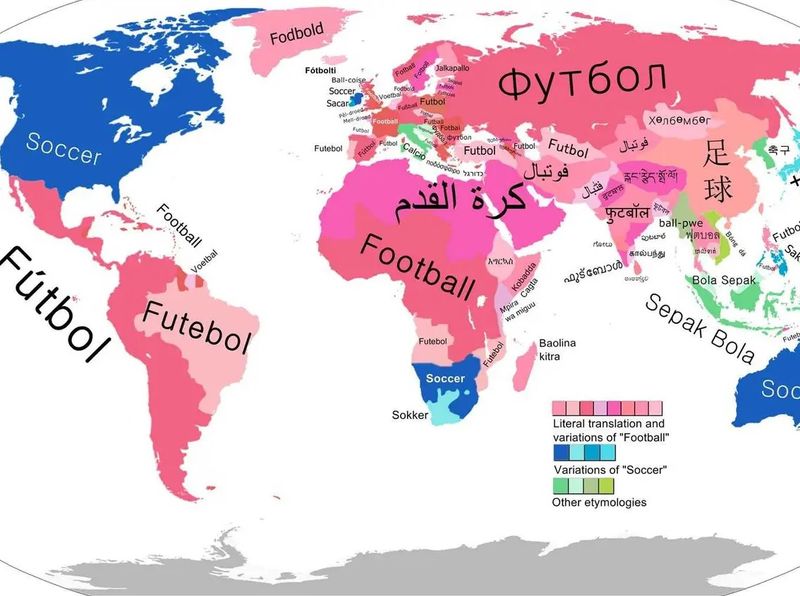
"Football"/"Soccer" had many different names all around the world
Therefore, if a British person ever mocks you for using the term soccer instead of football, you can inform them that soccer actually originated in the UK! And if you find it challenging to remember all these different names, you can take inspiration from the Spanish language and call it ... fútbol!
Perception and Identity
Perception and identity play a crucial role in shaping language, and one interesting linguistic phenomenon that highlights why do Americans call it soccer to refer to the sport known as "football" in most other parts of the world.
Impact of National Identity on Terminology
The impact of national identity on the terminology used for sports cannot be underestimated. In the case why does American call football soccer, the sport originated in England and spread across the globe, becoming deeply rooted in the culture of many countries. However, when it comes to the United States, where football predominantly refers to a different sport played with an oval-shaped ball, the term "soccer" gained popularity to distinguish it from American football.
The adoption of the term "soccer" in the United States can be attributed to the desire to maintain a clear distinction between the two sports, allowing Americans to preserve their unique sporting identity.
The Perception of Soccer as an International Sport
Soccer is widely regarded as an international sport, with a massive following and global competitions like the FIFA World Cup. The perception of soccer as a sport that transcends national boundaries and unites people from different cultures and backgrounds may contribute to its popularity worldwide.
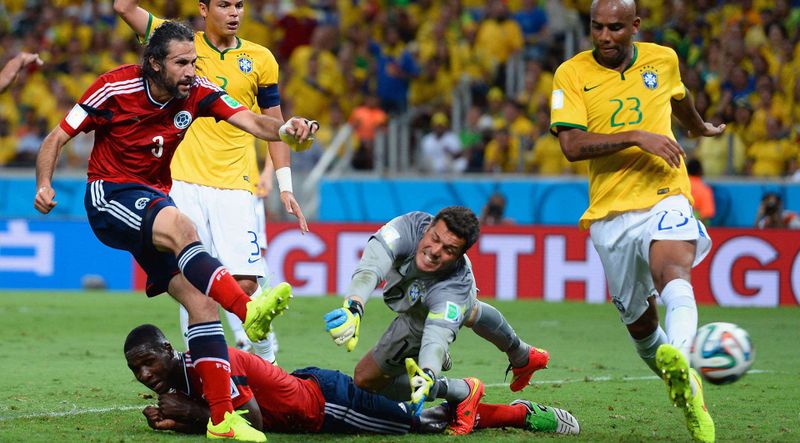
The Perception of Soccer as an International Sport
In the United States, where diverse communities and cultures coexist, the use of the term "soccer" may reflect the inclusive nature of the sport and its ability to bring people together on a global scale. By adopting the term "soccer," Americans acknowledge and embrace the international aspect of the sport, aligning it with their perception of soccer as a unifying force.
American Sports Culture and its Association with Unique Terms
The American sports culture is distinct and characterized by its own set of terminology. From baseball to basketball, American sports have developed their own unique lexicon that sets them apart from their international counterparts. This cultural context likely influenced the adoption of the term "soccer" in the United States.
The use of distinctive terms for various sports is deeply ingrained in American sports culture, and soccer's association with the term "soccer" reflects this trend. By embracing a different name for the sport, Americans reinforce their sports culture and maintain a sense of individuality within the global sports landscape. The term "soccer" has become an integral part of American sports jargon, further contributing to the identity of American sports enthusiasts.
Media Influence
The Role of Media in Shaping Language and Terminology
The media plays a significant role in shaping language and terminology, and sports are no exception. When it comes to soccer, the usage of the term "soccer" in American English can be attributed to the influence of the media. The term originated in Great Britain as a nickname for "association football" but gradually fell out of favor in the UK. However, it continued to be used by Americans, Canadians, South Africans, and some Australians and Irish to distinguish the sport from other football variations.
The prevalence of the term "soccer" in the American lexicon can be attributed to the extensive coverage and exposure of the sport by the media. The media has the power to popularize certain terms and shape public perception. In the case of soccer, the American media consistently used the term "soccer" to refer to the sport, leading to its widespread adoption among the American population.
Coverage of Soccer in American Media
Soccer has gained significant popularity in the United States over the years, with a growing fan base and increased media coverage. Major sports networks, such as ESPN, NBC Sports, and Fox Sports, have dedicated airtime to soccer events, including domestic leagues and international tournaments like the FIFA World Cup. This increased coverage has contributed to the widespread exposure of the sport to American audiences.
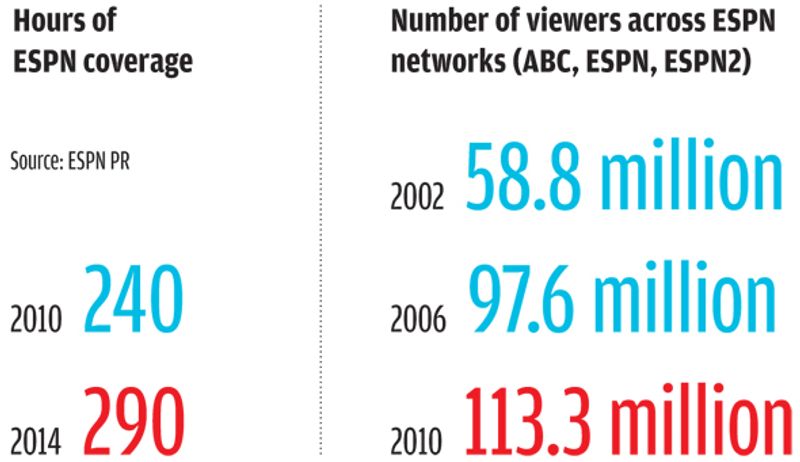
Coverage of Soccer in American Media
The American media's coverage of soccer has helped familiarize people with the term "soccer" and its association with the sport. By consistently using this term in their broadcasts, articles, and discussions, the media has reinforced its usage in the American context. As a result, many Americans have adopted the term as their preferred way of referring to the sport.
Using "Soccer" to Differentiate from Other Sports
Which final reason why do americans call football soccer? It is to differentiate from other sports. In the United States, the word "football" predominantly refers to a different sport altogether: American football. American football has its own distinct set of rules and is widely popular in the country. To avoid confusion between the two sports, Americans have embraced the term "soccer" to differentiate the sport from American football.
The usage of "soccer" helps maintain clarity and prevents ambiguity in conversations about sports. By employing a distinct term, Americans can easily convey their intention to discuss the sport known as soccer without any confusion. It has become a way of distinguishing between the two sports and ensuring effective communication within the American sporting context.
Education and Youth Participation
Influence of school systems and youth sports programs
Education plays a crucial role in shaping the cultural preferences and terminologies used in different countries. In the case of why Americans call football soccer, the influence of school systems and youth sports programs cannot be overlooked. In the late 19th century, as the sport of football gained popularity in the United States, it was introduced and embraced within school curriculums and youth sports programs. Schools became instrumental in promoting the sport and shaping the terminology used to distinguish it from other forms of football.
To distinguish the sport they were playing from American football, which was already well-established, American association-football players adopted the term "soccer" to refer to their sport. The use of "soccer" helped create a clear distinction between the two sports and avoid any confusion among players and fans. The United States Soccer Football Association, the official organizing body of American soccer, even changed its name in 1945 to incorporate "soccer" into its title, solidifying the term's usage.
The growth of soccer in schools and communities
Over the years, soccer has experienced significant growth in schools and communities across the United States. As a result of its inclusion in school programs and youth sports initiatives, more children and young adults have had the opportunity to engage with the sport. This increased exposure has led to a growing interest in soccer, both as a recreational activity and a competitive sport.

The growth of soccer in American schools and communities
Schools and community organizations have been instrumental in fostering a love for the game, providing training facilities, organizing leagues, and promoting youth participation. The growth of soccer in schools and communities has contributed to the widespread use of the term "soccer" to refer to the sport in American culture.
Globalization and Standardization
Sports have always played a crucial role in shaping culture and bridging gaps between nations. With the advent of globalization, the world has become more interconnected, and the influence of different sports has transcended borders. Soccer, known as football in most parts of the world, is a prime example of a sport that has gained immense popularity globally. However, the terminology used to refer to this sport varies across different regions, particularly in the United States.
Impact of Globalization on Language and Terminology
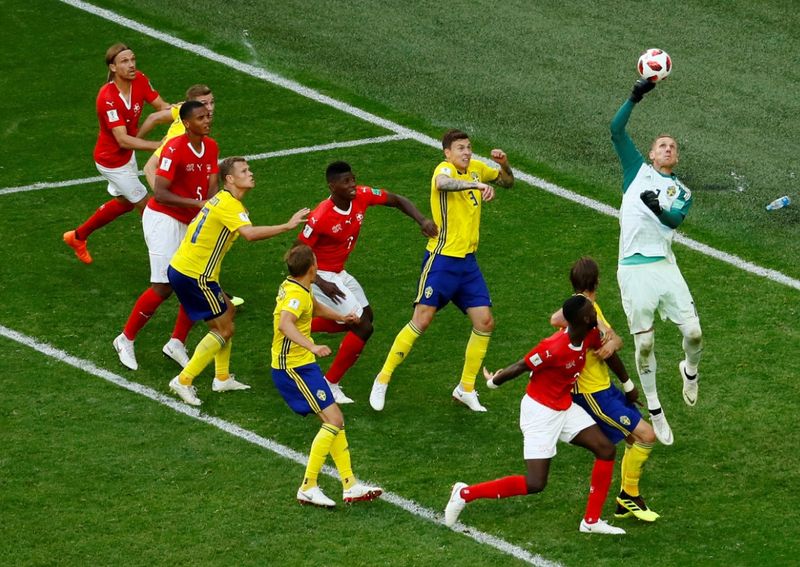
Impact of Globalization on Language and Terminology
Globalization has led to the exchange of ideas, cultures, and languages on a global scale. As a result, the impact of globalization on language and terminology has been significant. In the case of soccer, the term "football" is widely recognized and used in most countries. However, due to historical reasons and the dominance of American football, Americans refer to soccer as "soccer" to differentiate it from their own football. This variation in terminology showcases the influence of local culture and the divergence of language usage.
Efforts to Standardize Terminology across Different Regions
In recent years, there have been efforts to standardize the terminology used to refer to soccer across different regions. Organizations such as FIFA (Fédération Internationale de Football Association) have played a vital role in promoting uniformity in soccer-related terminology. They encourage the use of "football" as the standard name for the sport, aiming to eliminate confusion caused by different terms. However, these efforts face challenges in regions where alternative names have become deeply ingrained in the local culture and language.
Increasing Popularity of Soccer in the United States
Over the past few decades, soccer has witnessed a surge in popularity in the United States. With the growing influence of globalization, exposure to international soccer tournaments and leagues has increased. This exposure, coupled with the diverse demographics of the United States, has contributed to the rising interest in soccer. Major League Soccer (MLS), the premier professional soccer league in the country, has experienced steady growth in attendance and viewership, indicating the sport's increasing popularity among Americans.

Major League Soccer (MLS) is the premier professional soccer league in the US
Globalization has both influenced and standardized the language and terminology used in the context of soccer. While the rest of the world predominantly uses the term "football," Americans refer to the sport as "soccer" to distinguish it from American football. Efforts to standardize the terminology across different regions face challenges due to cultural and historical factors. Nonetheless, the increasing popularity of soccer in the United States signifies the sport's global impact and its ability to bridge cultural divides.
The term "soccer" originated in Great Britain, where it was initially used as a nickname for "association football." British university students in the late 19th century coined the term by shortening the word "association" to "soccer." However, while the British eventually phased out the use of the term, it continued to be embraced by Americans.
The cultural and linguistic dynamics play a significant role in the terminology used to refer to the sport. The United States has a unique sporting landscape with multiple variations of football, such as gridiron football, Canadian football, and American football. These variations have distinct rules and have contributed to the differentiation of terminologies. The term "soccer" helps Americans distinguish association football from other forms of football played in the country.
Furthermore, the relationship between American and British English has also influenced the terminology. The differences in pronunciation, vocabulary, and cultural contexts have resulted in variations in language usage. The term "soccer" serves as an example of how linguistic differences can emerge between two English-speaking countries.
FAQs - Why do americans call football soccer?
- While soccer and American football share some similarities, they are distinct sports. In the United States, soccer refers to the sport that is globally known as football. American football, on the other hand, is a different sport with its own set of rules and terminology.
- The term "soccer" is used in the United States to differentiate the sport from American football. American English developed its own terminology to avoid confusion with the dominant sports in the country. The usage of "soccer" has become widely accepted and prevalent over time.
- The term "soccer" originated as a slang abbreviation for "association football" in Britain. Over time, British English adopted "football" as the primary term, while "soccer" came to be associated with other codes. This historical context influenced the usage of "soccer" in the United States.
- As soccer gains popularity in the United States, there has been a gradual convergence toward using "football" in certain contexts. However, the term "soccer" remains prevalent due to its historical roots and the need to distinguish it from American football.
- Media coverage plays a significant role in shaping language and popularizing certain terms. In the United States, where American football, baseball, and basketball dominate the sports media landscape, the usage of "soccer" helps differentiate the sport from its counterparts.

Related Content




























